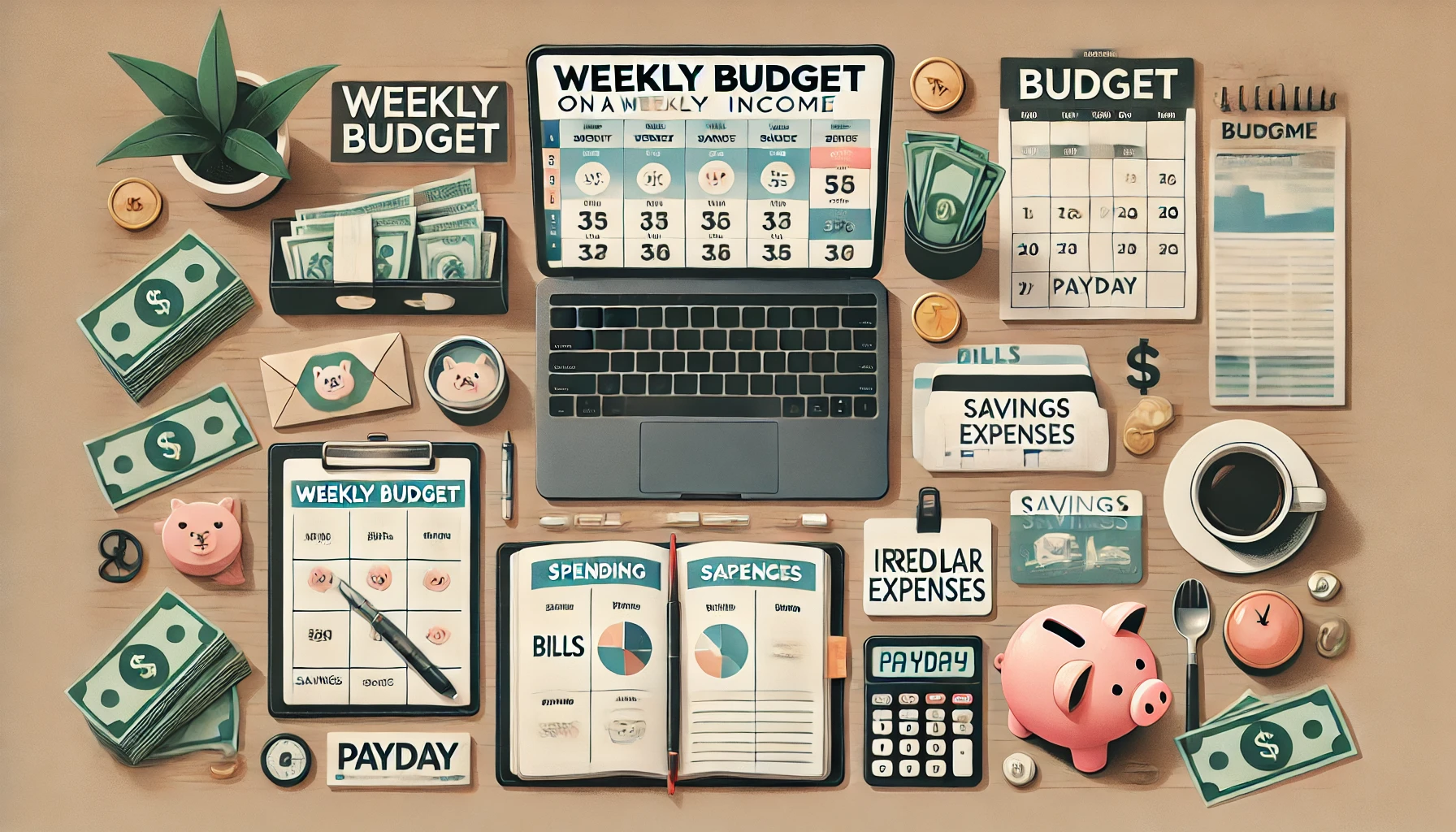Budgeting is essential for financial stability—but if you get paid weekly, it can feel tricky. Monthly bills, changing expenses, and a fast-moving paycheck cycle can make it harder to stay organized.
The good news? With the right approach, budgeting on a weekly income can actually give you more control over your money.
In this article, you’ll learn how to create a weekly budget that works—so you can stay on top of bills, build savings, and feel confident every time payday comes around.
Why Weekly Budgeting Can Work in Your Favor
Weekly income gives you four (or sometimes five) chances per month to hit reset. That means:
- You can adjust quickly if something goes wrong
- You’re more aware of your cash flow
- You can build habits and savings faster
It just takes a slightly different approach than monthly budgeting.
Step 1: Know Your Fixed Monthly Expenses
Start by listing all your fixed monthly bills, such as:
- Rent or mortgage
- Utilities
- Phone/internet
- Loan or debt payments
- Subscriptions
Add them up to get your total monthly bills. Then divide that number by 4 (or 4.33) to get the weekly amount you need to set aside.
Example:
- Total monthly bills = $1,200
- Weekly amount to set aside = $1,200 ÷ 4 = $300
You’ll save this amount each week to cover your monthly obligations.
Step 2: Track Your Weekly Income
Figure out exactly how much you bring home each week after taxes.
If your income varies, use a 3–4 week average to get a starting point. Be conservative to avoid overspending.
Knowing your real weekly cash flow lets you plan with accuracy—not guesswork.
Step 3: Create Weekly Spending Categories
Now divide your money into clear categories for each week.
Core categories might include:
- Essentials (groceries, gas, household)
- Bills (set-aside from above)
- Savings or debt payments
- Personal/fun money
- Buffer (small emergency cushion)
Use envelopes, a spreadsheet, or an app like YNAB or Goodbudget to stay organized.
Step 4: Use a “Holding Account” for Monthly Bills
Set aside your bill money weekly in a separate account or category.
This avoids the trap of:
- Getting paid → spending freely → struggling when rent is due
Treat your monthly bills like a weekly subscription you’re funding in advance.
Step 5: Assign Each Paycheck a Job
Every week, decide what that paycheck needs to do.
Example for a $500 weekly paycheck:
- $300 → bills holding
- $50 → groceries
- $50 → savings
- $50 → transportation
- $50 → fun or extra debt payment
Zero-based budgeting works well here—every dollar has a job.
Step 6: Build a Weekly Financial Routine
Pick one day each week—like payday or Sunday—to:
- Review your previous week
- Assign the next week’s income
- Check upcoming bills
- Refill envelopes or tracking tools
This habit makes your finances feel lighter, not heavier.
Step 7: Use a 5th Paycheck as a Bonus
Some months have five Fridays (or paydays)—which means one “extra” check.
Instead of increasing spending, use that money to:
- Pay off debt
- Add to your emergency fund
- Start a sinking fund for holidays or travel
- Make an extra loan or credit card payment
That 5th check is your secret weapon.
Step 8: Prepare for Irregular Expenses
Just because you budget weekly doesn’t mean you should forget occasional costs like:
- Oil changes
- Birthdays or holidays
- School supplies
- Medical co-pays
Create “sinking funds” and contribute to them weekly. Even $5–$10/week makes these costs easy to handle when they come.
Step 9: Avoid Living Week-to-Week
The goal is not just to budget weekly—it’s to build a system that breaks the paycheck-to-paycheck cycle.
To do that:
- Save a little each week
- Build one week’s buffer, then two
- Work toward being one week ahead on bills
Eventually, you’ll feel more relaxed and in control.
Final Thought: Weekly Budgeting = Weekly Progress
Budgeting on a weekly income doesn’t have to be stressful or confusing. In fact, it can help you build stronger habits, stay more connected to your money, and make smarter decisions every single week.
With a clear system, a simple plan, and just a few minutes of consistency, your weekly paycheck can become your most powerful financial tool.
